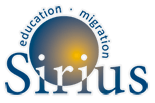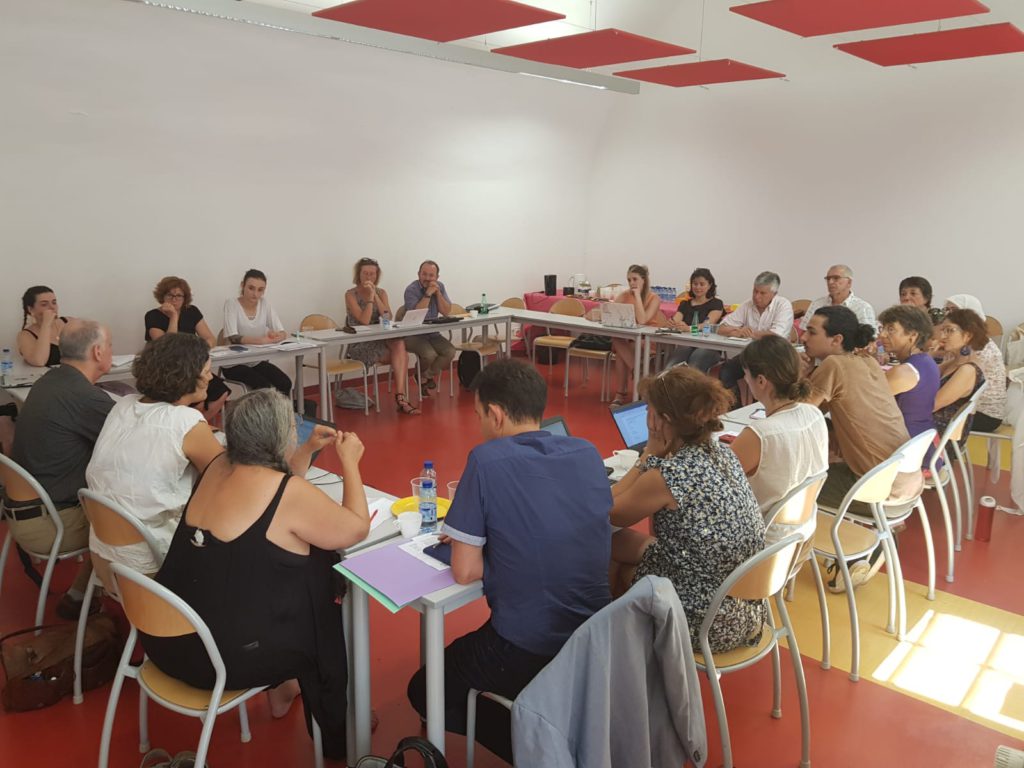CONTEXT
The inclusion of newly arrived children in schools and in society is under the competence of the French Ministry of Education and other Ministries such as Sports, Youth, popular education and community life.
Thus, “inclusion” still remains an aim to be reached. In schools, studies (Auger 2019, Goï XX) show that teachers, especially when they do not teach in specific classes for newly arrived children but in regular classes, are not trained on how to promote inclusiveness and are scarcely aware about the use of plurilingualism and previous cultural experiences as resources within the class. At the community level, many NGOs offer extra-classes, art or sport activities to newly arrived children and to their families in order to help them be part of the community and are more open to plurilingualism. Nonetheless, the cooperation between formal and non-formal education remains weak. These elements have been highlighted as main conclusions of the Round Table 2018 in France. The event also strongly stressed the need to create ways and platforms for education stakeholders (associations, NGOs and the National Education system) to better work together. Three different projects were proposed with the goal of creating a “learning territory”, to work and learn together to promote the inclusiveness of newly arrived children. The first idea was to create a digital tool (a platform) to foster the communication between teachers, schools and NGOs; the second aimed at developing inclusive actions by creating synergies between NGOs’ and schools’ initiatives while the last envisages to offer multi-category training to volunteers, social workers, practitioners, teachers and headmasters. In the timeframe between the Round Table 2018 and the one in 2019, the University of Montpellier (UPVM) have organized various meetings with regional policy makers to reflect on how to create a digital tool to reinforce multistakeholder communication and exchange. As outcome of this reflection, a civil servant has been recruited to create the platform as output of the Round Table 2019. With regard to the inclusive actions, UPVM has been able to showcase to schools various initiatives implemented by NGOs at the local level. A traineeship has also been proposed to a Master degree student on “French as a second language” to inform schools in the region about resources offered by associations and NGOs in this area. In relation to the training component, school teachers have been invited to numerous conferences organized by local/regional associations and institutions. Nonetheless, very few of them were able to participate. That is why the ambition of the Round Table in France is to create a digital communication platform as a less challenging tool to mutualize information and promote knowledge sharing.
The main goal of the Round Table 2019 was therefore to gather together different education stakeholders (schools and NGOS, associations) to pave the way for a long-term project on “inclusion” addressing the three aforementioned objectives, with the ambition to include policymakers in the overall process. The final objective was thus to develop strategies for counselling and planning inclusion in schools by building bridges with NGOs on plurilingualism. At this stage, only the local and regional levels are at stake, although the ambition is to extend and replicate the results at a national level as final outcome. These actions should prevent newly arrived children from being excluded from the school system and failing during their studies.


